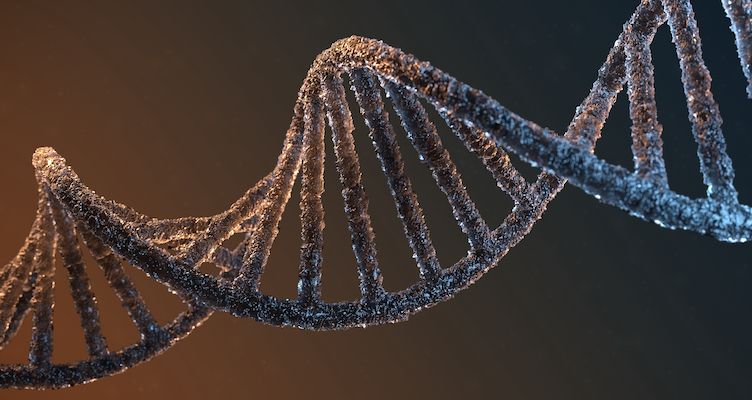12.11.20
Blue California, marker of the amino acid ergothioneine ingredient ErgoActive, recently announced the results of an in vitro study published in the Journal of Dietary Supplements, which yielded evidence that this ingredient was able to preserve telomere length and reduce the rate of telomere shortening under oxidative stress.
“Our results suggest that ergothioneine as part of a healthy diet could potentially mitigate the negative effects of oxidative stress and support healthy aging by helping to preserve telomere length and reduce the rate of shortening,” Dr. Priscilla Samuel, Blue California’s Chief Science Officer, said.
Telomeres are complex protein structures located at the end of each DNA strand, which protect chromosomes from being damaged. When DNA strands are frayed or worn down, it is believed to negatively impact the ability for cells to carry out a number of specialized genetic functions, thus contributing to cellular damage.
Shortened telomeres are associated with aging and inflammation, as well as chronic conditions such as cancer, cardiovascular disease, and diabetes. For these reasons, the authors of the study suggest that preserving telomere length may offset some of the effects of aging, by naturally preserving tissue at the cellular level.
“Many areas of health are impacted by oxidative stress during aging, including longevity, bone health, cardiovascular health, cognition, and skin vitality,” Samuel said. “As oxidative stress accelerates the shortening of telomeres, antioxidants such as ergothioneine may help to decelerate it.”
Ergothioneine, a naturally occurring amino acid with potent antioxidant properties, is an essential nutrient that can be found in mushrooms, beans, and oat bran. For most people, the dietary consumption of foods rich in ergothioneine is low. Interestingly, humans endogenously produce an ergothioneine transporter, which leads some researchers to suggest that this nutrient may be essential to human health, Blue California said.
In the in vitro study, researchers used human neonatal dermal fibroblast cells, and observed the activity of telomeres that were exposed to ergothioneine under both standard and oxidative stress conditions during an 8-week period. Under all four tested concentrations of ergothioneine, median telomere length was significantly longer than the control cultures and a significantly reduced percent of short telomeres was also observed, providing evidence of a protective effect.
“Blue California actively invests in clinical studies to advance the science and impact of our ErgoActive ergothioneine on overall health and wellness and look forward to investigating these effects in human clinical studies as well,” Samuel said. “We are committed to furthering research for substantiating functional benefits and claims associated with ingredients for use in dietary supplements, functional foods and beverages, personal care products, cosmetics, and pet nutrition.”
In early February of this year, Blue California filed a petition reporting the discovery of ErgoActive ergothioneine’s impact on telomere shortening associated with oxidative stress.
“Our results suggest that ergothioneine as part of a healthy diet could potentially mitigate the negative effects of oxidative stress and support healthy aging by helping to preserve telomere length and reduce the rate of shortening,” Dr. Priscilla Samuel, Blue California’s Chief Science Officer, said.
Telomeres are complex protein structures located at the end of each DNA strand, which protect chromosomes from being damaged. When DNA strands are frayed or worn down, it is believed to negatively impact the ability for cells to carry out a number of specialized genetic functions, thus contributing to cellular damage.
Shortened telomeres are associated with aging and inflammation, as well as chronic conditions such as cancer, cardiovascular disease, and diabetes. For these reasons, the authors of the study suggest that preserving telomere length may offset some of the effects of aging, by naturally preserving tissue at the cellular level.
“Many areas of health are impacted by oxidative stress during aging, including longevity, bone health, cardiovascular health, cognition, and skin vitality,” Samuel said. “As oxidative stress accelerates the shortening of telomeres, antioxidants such as ergothioneine may help to decelerate it.”
Ergothioneine, a naturally occurring amino acid with potent antioxidant properties, is an essential nutrient that can be found in mushrooms, beans, and oat bran. For most people, the dietary consumption of foods rich in ergothioneine is low. Interestingly, humans endogenously produce an ergothioneine transporter, which leads some researchers to suggest that this nutrient may be essential to human health, Blue California said.
In the in vitro study, researchers used human neonatal dermal fibroblast cells, and observed the activity of telomeres that were exposed to ergothioneine under both standard and oxidative stress conditions during an 8-week period. Under all four tested concentrations of ergothioneine, median telomere length was significantly longer than the control cultures and a significantly reduced percent of short telomeres was also observed, providing evidence of a protective effect.
“Blue California actively invests in clinical studies to advance the science and impact of our ErgoActive ergothioneine on overall health and wellness and look forward to investigating these effects in human clinical studies as well,” Samuel said. “We are committed to furthering research for substantiating functional benefits and claims associated with ingredients for use in dietary supplements, functional foods and beverages, personal care products, cosmetics, and pet nutrition.”
In early February of this year, Blue California filed a petition reporting the discovery of ErgoActive ergothioneine’s impact on telomere shortening associated with oxidative stress.




























